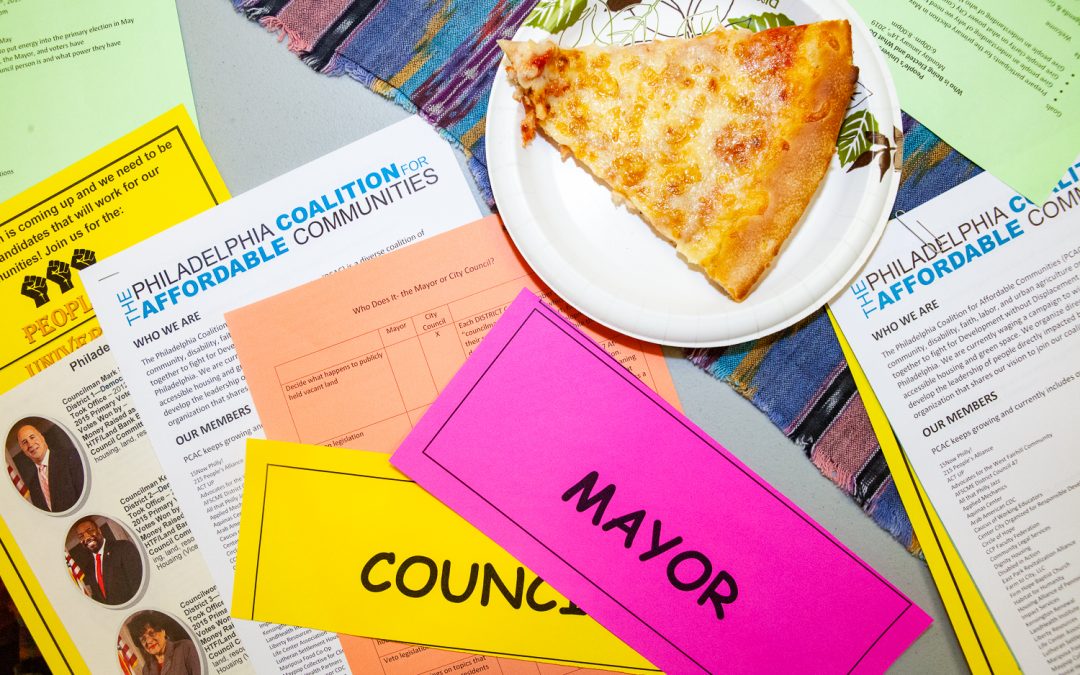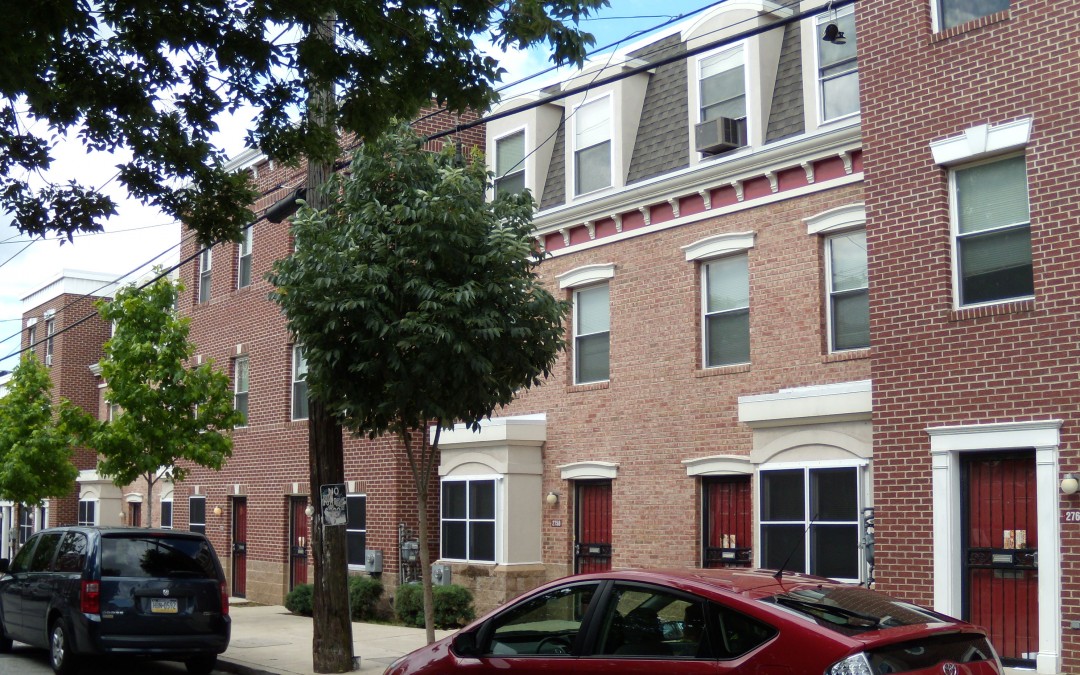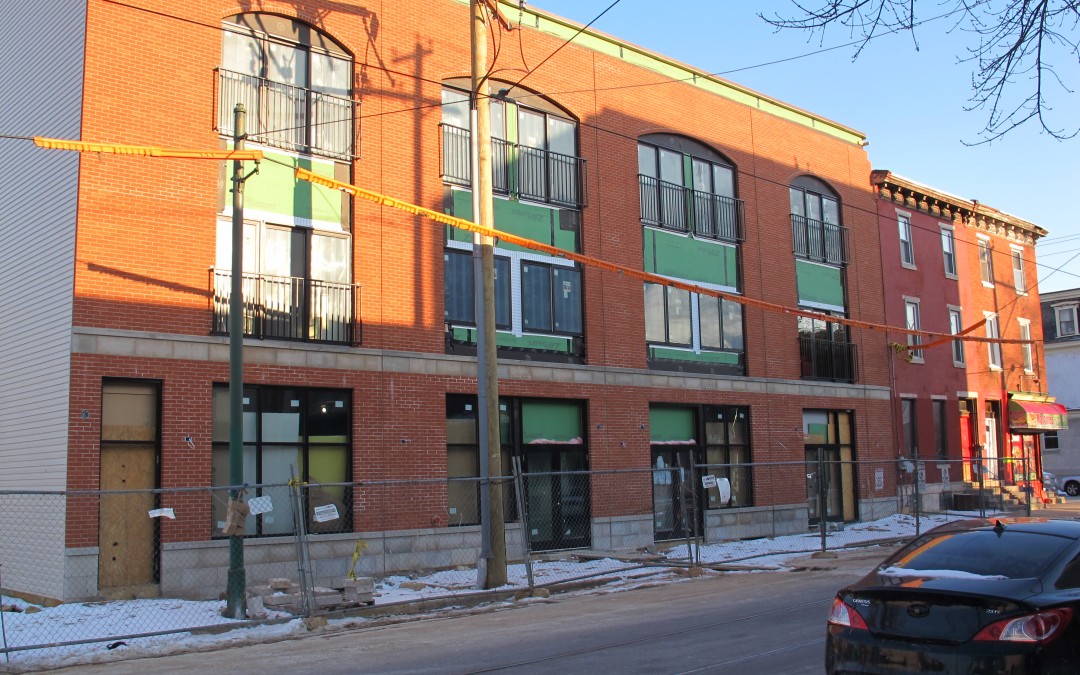by pcacadmin | Sep 30, 2019 | Accessible Housing, Affordable Housing, Philadelphia
Thursday, September 12th was the first day for city council after their recess. Like coming back to school after summer break, it’s a time to get back to work. For members of the Philadelphia Coalition for Affordable Communities, it is also a time to get back to work in a sense. We work all year round, but the first day of council is special. On that day we get back to making city council aware of our presence. This year we are demanding change to the ten year tax abatement. The tax abatement means tax free development on new construction, for ten years! In other words, developers don’t pay property taxes on all that fancy development you see happening in your neighborhood. Meanwhile, neighboring property taxes go up, affecting renters and homeowners. It also means that public schools lose revenue since schools are funded, in part, through property taxes. This incentive may have been a good thing when it started more than a decade ago to spur community revitalization, but it is now clear that developers no longer need this incentive. We need everyone to pay their fair share of taxes to fund things like affordable, accessible housing and public schools. This year, we met outside city hall at 10am and gathered with members of Our City Our Schools, an education reform coalition fighting for school funding. The coalition wore our signature green shirts with our message of development without displacement and Our City Our Schools came in their signature orange. Our objective was to present a united front to city council so they would know they can no...

by pcacadmin | Jan 29, 2019 | Accessible Housing, Affordable Housing, Displacement, Election, Gentrificaton, Philadelphia
My name is Emma; I was born here in Philadelphia and grew up mostly in the Wynnefield section of the city. I grew up on a block where everyone knew everyone. It was a working class neighborhood and the American dream was alive and well. I now live in South Philly and I work in North Philly at the Low Income Energy Assistance Program (LIHEAP). LIHEAP helps low income families with heating expenses and makes referrals to the city for individuals who need basic system repair assistance. I spend a lot of my free time wandering all over the city, this city that holds some of my dearest memories, the city that I love. The city has changed over the years, sometimes for the better and sometimes not so much. There are new houses coming up in old neighborhoods that changes how much it costs to live there. As a renter, I can tell you that it is almost impossible to find decent affordable housing. I have dealt with landlords who weren’t legal, who would not keep up repairs on the property, but whose prices were reasonable. Then when I would find a decent property, the rent would be almost double in price. There shouldn’t be such a disparity in pricing for decent housing in this city. Decent, affordable housing needs to be treated as a right and not a privilege. Working at LIHEAP I hear stories everyday about the hardships people are having with housing. Recently, I spoke to a client that is 97 years young who worked hard all of her life. She married, raised 3 children...

by pcacadmin | Aug 13, 2015 | Affordable Housing, Philadelphia
The Philadelphia Coalition for Affordable Communities c/o Women’s Community Revitalization Project 100 West Oxford Street, Suite E-2300 Philadelphia, PA 19122 August 12, 2015 His Holiness, Pope Francis Apostolic Palace 00120 Vatican City Your Holiness: We are honored that in a few short weeks you will be coming to visit Philadelphia. As you celebrate Mass on the steps of the Philadelphia Museum of Art and look at the hundreds of thousands of people on the Benjamin Franklin Parkway, you will see the gleaming skyscrapers and luxury apartment buildings that are testament to the promise of our great city, which has overcome decades of population decline to embark on a new era of growth and development. Yet mere blocks from where you will be standing are neighborhoods gripped by some of the most intense poverty in the United States. Philadelphia remains the poorest big city in America, and tens of thousands of Philadelphians are still living without access to affordable homes. More than 240,000 households citywide [including half of all renters] are spending more than they can afford on their housing costs. The new growth and luxury development in our city has created rising housing costs and put increased pressures on families – who now fear being priced out of the communities where they have lived for generations. In some neighborhoods of Philadelphia, real estate prices have increased 200 percent (200%) from 2000 to 2012. These rapid changes are having a disproportionate impact on minority communities. The African American population in sections of South and West Philadelphia, for example, has decreased by nearly 30 percent (30%) due to these pressures. Throughout...

by pcacadmin | May 14, 2015 | Election, Philadelphia, Uncategorized
The Primary Election is next week (Tuesday, May 19th) and Philadelphians have an opportunity to elect (or re-elect) members of City Council, along with a new Mayor. Who gets elected will have a profound impact on the future of our city, as they will decide which policies get enacted – and which don’t. Two of our Coalition’s steering committee members, Nora Lichtasch and Tom Earle, co-wrote an op-ed in the Philadelphia Daily News reminding voters to choose leaders with public-policy goals that encourage equitable community development and represent plans that include people of all income levels in the future of our neighborhoods. Their words are critically important to keep in mind when you head to the polls on Tuesday. Our Coalition has put a proposal forward to expand and protect affordability in gentrifying neighborhoods by applying a 1.5% Anti-Speculation Tax on ‘flipped houses’ (those bought and resold within 24 months). It has the potential to generate up to $12 million in additional revenue for the Philadelphia Housing Trust Fund that can literally change thousands of lives. Since its inception in 2010, the Housing Trust Fund has dedicated 50% of its proceeds to improving housing options for families earning less than $20,000 per year and has provided housing opportunities to more than 14,000 low- and moderate-income families, seniors, disabled, and homeless people to date. We found that in 2013, more than 6,000 real estate transactions in the City fit the description of flipped houses, at an estimated total value of $782 million. In addition to that figure clearly indicating a very profitable business practice, many of those transactions were discovered...

by pcacadmin | Mar 10, 2015 | Displacement, Gentrificaton, News, Philadelphia
With words like “glam,” building “pedigree,” “hot” neighborhoods, and “luxification,” Philadelphia Magazine’s Philadelphia’s New Boom article clearly highlights who is going to benefit from our city’s revitalization- the wealthy. The investments are a sign that our city is on the upswing, but with (multi-) million dollar homes being built it is clear that, in some neighborhoods, Philadelphia is facing growing inequality. Philadelphia has tackled a declining population for decades and our recent resurgence has meant significant changes in our housing market. As a city we are in serious need of a boost to our tax base and this new development can help bring that. But even as housing costs skyrocket, income levels for most Philadelphians are shrinking. Philadelphia remains one of the poorest major cities in the nation and this housing boom does nothing to address the needs of seniors, disabled citizens, and working families- many of whom struggle to stay in the communities they call home. If our city lets development proceed unchecked, we could soon be facing the same housing crises that plague San Francisco and Boston, where even firefighters and teachers cannot afford to live in the city where they work. We need to make sure that we are preserving affordability in rapidly changing neighborhoods so that those who are committed to and invested in our communities can afford to stay. We want to see Philadelphia revitalized in a way that does not displace the people who have lived through this city’s disinvestment. We want to be a city where every neighborhood has: • Economic and racial diversity, • Affordable, accessible housing options, • Local businesses...




